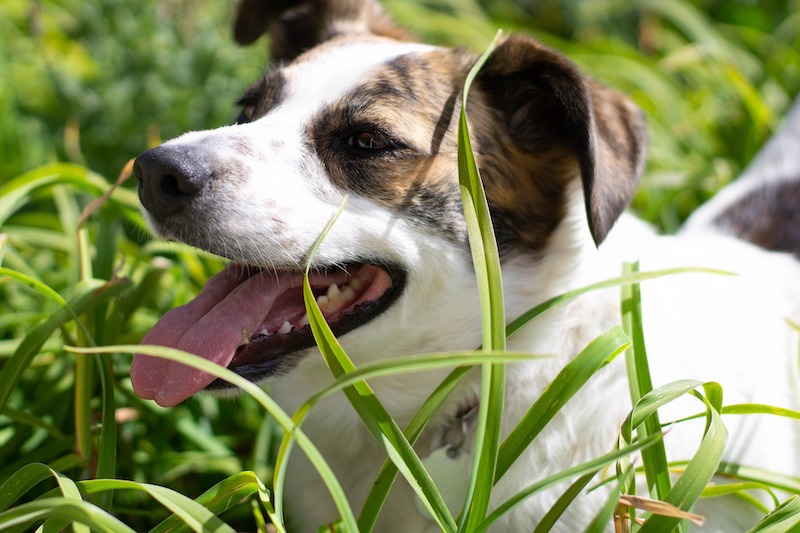Lilies are beautiful plants, popular in gardens and as cut flowers, but it is important to note that some types of lilies can be poisonous. While not all lilies are toxic, many of the common types are highly poisonous to cats including Easter lily, tiger lily, Asiatic lily, and Oriental lily. All parts of the plant, including the leaves, seeds, flowers, and roots can be harmful if ingested.
Be aware of this if you have children or pets, as they may be more likely to ingest the plant accidentally. If you suspect your child or pet has eaten a lily, it is crucial to seek medical attention immediately. A veterinarian or doctor can determine the best course of action and help prevent serious health problems. In some cases, ingestion of lilies can be fatal, so take precautions and seek help if necessary. By being aware of the potential risks, you can help ensure the safety of your loved ones and enjoy your lilies without worry.

Are Lilies Poisonous to Children?
Lilies can be poisonous to children if they ingest certain parts or varieties. For example, the buds of asiatic lilies are edible, but other parts can be harmful. Be cautious if you have children, especially toddlers and babies, who may be more likely to touch or put plants in their mouths. Ingesting lilies may cause symptoms such as vomiting, diarrhea, loss of appetite, lethargy, and dehydration. Common star lily (Toxicoscordion fremontii) is not a true lily and contains a toxic alkaloid in all parts of the plant that can cause severe poisoning. If you suspect your child has ingested a lily, seek medical attention immediately.
Are Lilies Poisonous to Dogs?
Most true lilies are not toxic to dogs. Some plants with 'lily' in their name are toxic to dogs including peace lily, lily of the valley, calla lily, prairie lily, and Gloriosa lily. Be cautious if you have dogs, especially puppies, as they may be more likely to chew on plants. While it is not common for dogs to be drawn to lilies, it is still important to be aware of the potential risks and take precautions to keep your dog safe. If you suspect your dog has ingested a lily, seek veterinary attention immediately.

Are Lilies Poisonous to Cats?
Lily poisoning, also known as lily toxicosis, can occur when a cat ingests any part of a lily plant. If you suspect that your cat has ingested any part of a lily plant, seek veterinary care immediately. Treatment may include medications to control vomiting and diarrhea, fluids to help prevent dehydration, and medications to support kidney function. Keep lily plants out of reach of cats to prevent accidental ingestion.
Are Lilies Poisonous to Other Animals?
Some true lilies, including Easter lily, are toxic to grazing animals such as cows and horses. True lilies are not typically found in areas where livestock graze, although other plants with lily in the common name, e.g. lily of the valley, are known to be highly toxic to these animals. Ingestion of any part of these plants can cause toxicity. Keep lily plants out of reach of pets and other animals to prevent accidental ingestion. If you suspect that an animal has ingested any part of a lily plant, seek veterinary care immediately. Treatment will depend on the specific symptoms and the severity of the poisoning.

Symptoms Of Lily Poisoning
Always check with your doctor or veterinarian for guidance if you suspect lily poisoning.
Here are some common symptoms to look out for:
- Vomiting
- Diarrhea
- Loss of appetite
- Lethargy
- Dehydration
- Kidney failure (in severe cases)
Preventing Lily Poisoning
To prevent lily poisoning, keep lily plants out of reach of pets and other animals. You can achieve this by keeping the plants in a fenced area, in a raised garden bed, or in a container that is not accessible to animals. Properly dispose of any wilted or dead lily flowers, as these can still be toxic to animals. It is imperative to be cautious if you have cats, as they are particularly sensitive to lily toxicity. If you have lily plants in your home or garden, educate yourself and your family members about the potential risks of lily poisoning and the steps to prevent it. If you suspect that an animal has ingested any part of a lily plant, seek veterinary care immediately.
Pet Poison Helpline
If something were to happen to your furry friend, and you suspect that they are suffering from lily poisoning, there is a poison control hotline to call for 24/7 vet advice. It is called the Pet Poison Hotline, and their phone number is (855) 764-7661.
Sources:
"Lovely Lilies and Curious Cats: A Dangerous Combination." US Food and Drug Administration. fda.gov
"Which Lilies Are Toxic to Pets?" American Society for the Prevention of Cruelty to Animals. aspca.org
 |
Author Chris Link - Published 1-27-2023 |
